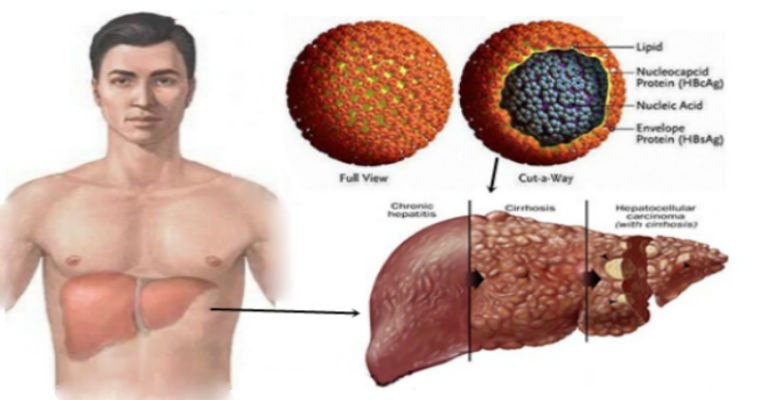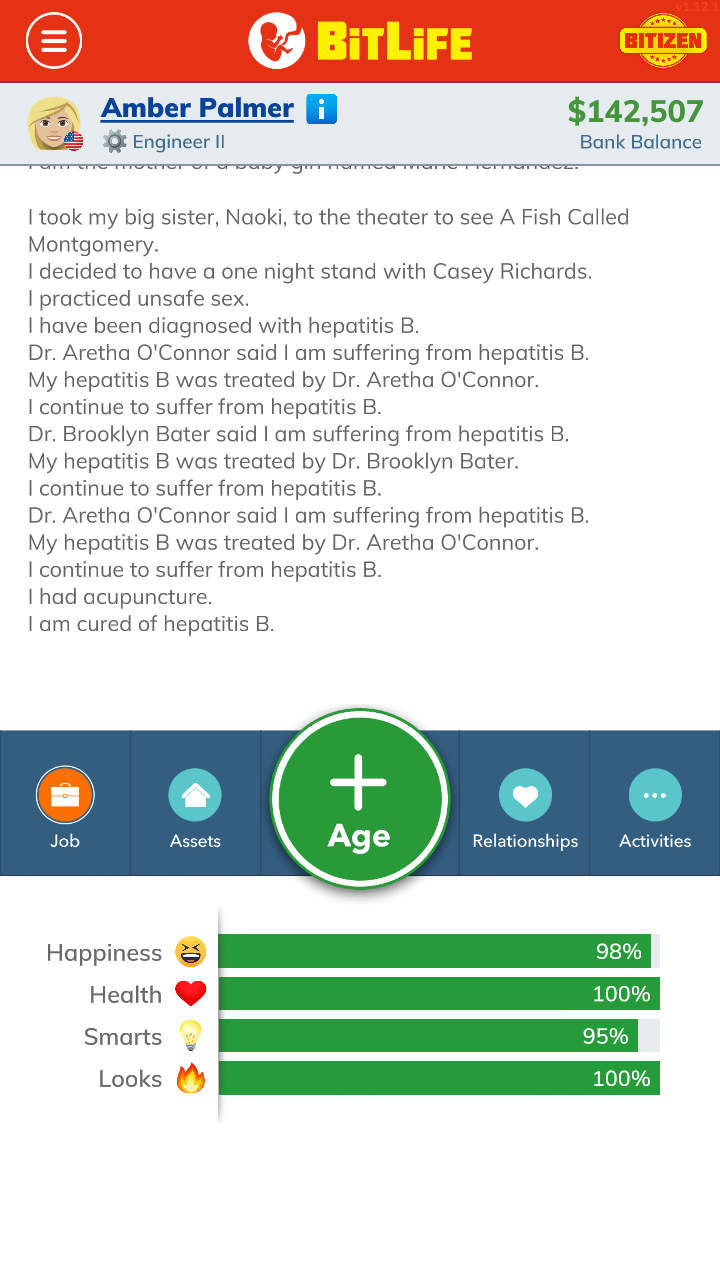Management Of Inactive Hbsag Carrier
Differentiation from chronic HBsAg negative hepatitis B, requires serial testing of ALT and HBV DNA for one year before designating carrier state . In subject with inactive carrier state testing of HBV DNA and liver biopsy are not recommended. Treatment is not recommended as there is no evidence that available therapy affects HBsAg status. Family screening with HBsAg and anti-HBs, if negative vaccinate them and success of vaccination should be confirmed with anti-HBs testing. Protected sexual intercourse until partner has developed protective antibodies. The offspring need active and passive vaccination . Use of alcohol should be avoided, possibility of reactivation or super infection by other viruses and advised if there is jaundice, malaise or increased fatigue. Regular follow-up at every 612 months intervals with ALT . If the age of the patient is more than 50 yrs family history of HCC-AFP and ultrasonography every 612 monthly should be done. Universal precaution should be taken while treating these patients in the hospital. They should not be allowed to donate the blood or organ or semen. For pregnant women vaccinate the new born at birth with active and passive immunization with in 12 hours of the birth, close monitoring required if undergoing chemotherapy or immunosuppressive medication.
What Are The Symptoms
- Symptoms can take 2 to 6 months to appear.
- Many people who are infected with hepatitis B have either no symptoms or only mild symptoms.
- Symptoms of acute hepatitis B can include fatigue, loss of appetite, joint pain, abdominal pain, nausea, vomiting, fever, and dark urine. A small number of people will develop jaundice .
- Some people develop chronic hepatitis B and most remain contagious for the rest of their lives. Chronic infection may lead to cirrhosis and/or liver cancer. Most people with chronic hepatitis B are unaware of their infection.
How Far Have We Got
Some exciting research is underway around the world, including the recent identification of the cell receptor which allows the virus to infect the body. This has enabled studies of the complete virus replication cycle including the viral reservoir that is untouched by current therapies.
New approaches to a possible cure include mechanisms to block the virus entry into the cell and to stop the virus from making the proteins it needs to replicate and infect new cells.
Studies are also underway to enhance patients immune responses so their own natural defences can control or even eliminate the virus. This is similar to immunotherapies already being used to treat some cancers.
Read more:Explainer: the A, B, C, D and E of hepatitis
Its likely a hepatitis B cure will require a dual-pronged approach, directly targeting the virus while also enhancing the immune response in people who are infected.
The goal is to reduce the amount of virus in the body and restore the persons immune responses. This is called a functional cure and is similar to what happens when a person naturally gets rid of the virus. It would also mean they didnt need to take drugs any more.
Some of these approaches are now in early stage human clinical trials. More than 30 drugs have been developed and are being tested in people with chronic hepatitis B. However, much more work needs to be done to achieve a cure.
You May Like: Hepatitis A B C Symptoms
How Is It Currently Treated
There is no cure for chronic hepatitis B virus.
In most cases, treatment requires taking a pill every day for life to remain effective and to reduce the risk of liver cancer. Even then, it doesnt eliminate the risk.
Chronic hepatitis B hasnt been cured so far in part because current therapies have failed to destroy the viral reservoir, where the virus hides in the cell.
This is in contrast to hepatitis C virus, which has no such viral reservoir and can now be cured with as little as 12 weeks of treatment.
Read more:In contrast to Australia’s success with hepatitis C, our response to hepatitis B is lagging
Despite the huge human and economic toll of chronic hepatitis B, research to cure the disease remains underfunded. There is a misconception that because there is a vaccine, hepatitis B is no longer a problem.
The availability of effective cures for the unrelated hepatitis C virus has also led people to believe that viral hepatitis is no longer a problem.
Experts estimate that liver cancer deaths will substantially increase in coming decades without a cure for hepatitis B, despite deaths from most cancers decreasing.
What Are Clinical Trials For Hepatitis B

Clinical trialsand other types of clinical studiesare part of medical research and involve people like you. When you volunteer to take part in a clinical study, you help doctors and researchers learn more about disease and improve health care for people in the future.
Researchers are studying many aspects of hepatitis B, such as
- progression of hepatitis B and long-term outcomes
- new treatments for hepatitis B
- prevention of reactivated or worsening hepatitis B in people receiving cancer treatment
Recommended Reading: Autoimmune Hepatitis Primary Biliary Cholangitis
Antiviral Medication For Hepatitis B
Doctors may recommend antiviral medication for people with chronic hepatitis B, which occurs when the virus stays in your body for more than six months.
Antiviral medication prevents the virus from replicating, or creating copies of itself, and may prevent progressive liver damage. Currently available medications can treat hepatitis B with a low risk of serious side effects.
NYU Langone hepatologists and infectious disease specialists prescribe medication when they have determined that without treatment, the hepatitis B virus is very likely to damage the liver over time. People with chronic hepatitis B may need to take antiviral medication for the rest of their lives to prevent liver damage.
There are many different types of antiviral medications available, and your doctor recommends the right type for you based on your symptoms, your overall health, and the results of diagnostic tests. A doctor may take a wait-and-see approach with a person who has a healthy liver and whose blood tests indicate a low viral load, the number of copies of the hepatitis B virus in your bloodstream.
Someone with HIV infection or AIDS may have a weakened immune system and is therefore more likely to develop liver damage. The U.S. Centers for Disease Control and Prevention strongly recommends that people with HIV infection who are diagnosed with hepatitis B immediately begin treatment with antiviral medication.
What Is Involved In A Liver Transplant
A liver transplant is considered necessary when the liver is damaged and cannot function or in some cases of liver cancer. Your liver is very important. It is responsible for many functions related to making sure that your body stays healthy and is able to digest foods.
You may be eligible for a transplant if you have chronic hepatitis B infection or some of the diseases that may result from it, including liver cancer and cirrhosis. You will have to complete testing and be evaluated before being approved for a transplant. It is likely that you will be placed on a waiting list while an appropriate organ is found.
Donated livers come from two types of donors: living and deceased. Because the liver can regenerate, it is possible to use part of a liver for transplant. The remaining sections in both the donor and the receiver will grow into livers of adequate size.
People who get liver transplants must take anti-rejection drugs for the rest of their lives. These drugs make you more susceptible to infection. However, liver transplants have become more successful over time and continue to improve.
Also Check: Hepatitis A Vs B Vs C
Do Medicines Used To Treat Autoimmune Hepatitis Have Side Effects
Medicines for autoimmune hepatitis can cause side effects. Your doctor will monitor any side effects and help you manage them while you take these medicines. Your doctor also may adjust the doses or change the medicines you take. You may need to stop taking corticosteroids or azathioprine if you have severe side effects.
Side effects of corticosteroids may include
- changes in how you look, which may include weight gain, a fuller face, acne, or more facial hair
- liver damage
- pancreatitis
Corticosteroids and azathioprine suppress, or decrease the activity of, your immune system, which increases your risk for infections. These medicines can also increase your risk of developing cancers, especially skin cancers.
What Treatments Are Available For Chronic Hepatitis B If Medications Dont Work
If you have advanced hepatitis B, you might also become a candidate for a liver transplant. This path does not always result in a cure because the virus continues in your bloodstream after a transplant. To prevent being infected again after your transplant, you may be prescribed hepatitis B immunoglobulin with an antiviral agent.
Also Check: Hepatitis B Treatment Antiviral Drugs
Incomplete Or Failed Response To Treatment
Some people with autoimmune hepatitis have an incomplete response to treatment, meaning that treatment helps but does not lead to remission. If you have an incomplete response to treatment, you may need to take different medicines to help prevent liver damage.
Some people may fail to respond to treatment, meaning that the inflammation and liver damage of autoimmune hepatitis keep getting worse. Your doctor may recommend additional blood tests and higher doses of medicines. If liver damage leads to complications, you may need treatment for complications.
If I Have No Symptoms How Would I Know If I Have Hepatitis B
To confirm whether or not you have hepatitis B, you will need blood tests.
If you have at least one risk factor , you should ask your health care provider to be tested for hepatitis B. Also, you should be tested for hepatitis B if:
- you were born in a region where hepatitis B is more common, including Asia, Africa, southern and eastern Europe, the Pacific Islands, the Middle East, and the Arctic
- one or both of your parents immigrated from a region where hepatitis B is more common
- you live or travel to regions where hepatitis B is more common
- you have a family history of liver disease or liver cancer
- you have been in prison
- you are pregnant
- you have ever used injection drugs, even just once
- you have unexplained abnormal liver enzymes or if
- you receive medicines that suppress the immune system.
Recommended Reading: Side Effects Of Having Hepatitis C
Causes Of The Hepatitis B
There are several causes of Hepatitis B. If an infected person has sex with someone without using condom the virus gets transmitted. Sharing of injection syringes for injecting drugs is also a root cause. Using non- sterilized tools of tattoos and piercing and by sharing personal household items like razor, toothbrush and other articles with a host.
Reduce Your Chance Of Infection

You can reduce your chance of hepatitis B infection by
- not sharing drug needles or other drug materials
- wearing gloves if you have to touch another persons blood or open sores
- making sure your tattoo artist or body piercer uses sterile tools
- not sharing personal items, such as toothbrushes, razors, or nail clippers
- using a latex or polyurethane condom during sex
Also Check: How Long Can You Live With Hepatitis C Untreated
How Do You Test For Hepatitis B
A simple blood test carried out by a healthcare professional will show whether you have the virus. You may also be given extra tests to see if your liver is damaged.
If youve got hepatitis B you should be tested for other STIs. Its important that you tell your recent sexual partner/s so they can also get tested and treated. Many people who have hepatitis B dont notice anything wrong, and by telling them you can help to stop the virus being passed on. This can also stop you from getting the infection again.
What Are The Signs & Symptoms Of Hbv Infection
HBV can cause a wide range of symptoms, from a mild illness and general feeling of being unwell to more serious chronic liver disease that can lead to liver cancer.
Someone with hepatitis B may have symptoms similar to those caused by other viral infections, like the flu. The person might:
- be extra tired
- feel like throwing up or actually throw up
- not feel like eating
- have a mild fever
HBV also can cause darker than usual pee, jaundice , and belly pain.
People exposed to hepatitis B may start to have symptoms from 1 to 6 months later. Symptoms can last for weeks to months.
In some people, hepatitis B causes few or no symptoms. But even someone who doesn’t have any symptoms can still spread the disease to others.
Also Check: Hepatitis C How Is It Contracted
Hbeag Positive Chronic Hepatitis
Patients with HBeAg-positive chronic hepatitis B usually present in the third or fourth decade of life. Men outnumber women, liver damage ranges from mild to moderate or severe chronic hepatitis or active cirrhosis . Chronic hepatitis B tends to be milder in children. Nevertheless, severe liver disease including cirrhosis may occur in a small proportion of patients during childhood . A key event in the natural history of HBeAg positive chronic hepatitis is HBeAg seroconversion. Several studies have shown that seroconversion with marked reduction of HBV replication is associated with biochemical and histologic remission of inflammatory activity in the majority of patients . Regression of fibrosis occurs gradually months to years after HBeAg seroconversion. In longitudinal studies the observed probability of clearing HBeAg was about 50% and 70% within 5 and 10 years of diagnosis, respectively . Most studies have found that the mean annual rate of spontaneous HBeAg seroconversion ranges from 8 to 15% in children or adults with elevated ALT . Among Asian, most of whom have normal ALT, spontaneous HBeAg seroconversion occurs at a very low rate, less than 2% during the first 3 years of age and 4 to 5% in children older than 3 years . Several determinants for HBeAg seroconversion have been reported, including gender, age, ALT level, and more recently HBV genotypes. Older carriers and females are more likely to clear HBeAg .
Progress Towards A Cure
HBV is extremely challenging in terms of cure owing to the persistence of its mini-chromosome in human liver cells, its integration into the genome and its suppression of the host immune system.
For all these reasons the search for a cure needs a multi-pronged approach, and achieving it will probably require a combination of novel direct antivirals and immune enhancers, an approach supported by pre-clinical results.
Roche’s combinations of diagnostics and novel compounds will now be tested in chronic hepatitis B patients in trials in China and elsewhere. China is home to almost a third of all those infected with HBV in the world. Chinas participation in testing and developing these drugs has the potential to save millions of lives.
Don’t Miss: What Is Hepatic Flexure Cancer
Acute Hepatitis B Infection
There is no specific treatment for acute hepatitis B, and most people recover within one to two months. Usually, you can manage symptoms at home with painkillers if necessary. Your healthcare professional should advise you to have regular blood tests and physical check-ups. Most people make a full recovery from acute hepatitis B.
How Is Hepatitis B Treated
Your healthcare provider will treat you based on what type of hepatitis B you have, acute or chronic.
Acute hepatitis B infections
If you develop an acute form of the condition, you probably wont need medical treatment. Instead, your doctor will likely suggest that you get plenty of rest, drink lots of fluids and maintain a healthy diet to support your body as it fights off the infection.
Chronic hepatitis B infections
If you have chronic hepatitis B, you might be a candidate for drug therapy. Usually, drug therapy is used only if you have active liver disease. There are seven drugs that are approved by the U.S. Food and Drug Administration to treat hepatitis B. Two are injectable forms of interferon, while the five other antivirals are tablets.
You will need to take these medications every day. They help by slowing the viruss ability to multiply in your system. This helps reduce swelling and liver damage. Youll need to be regularly monitored for early signs of liver damage and liver cancer. Your healthcare provider will want to see you once or twice a year.
Recommended Reading: New Treatment For Hepatitis B
How Do I Treat My Hepatitis B
Not every patient with chronic hepatitis B needs to be on medication. Although there is no cure for hepatitis B, there are effective treatments that can reduce the risk of liver disease. However, if your ALT level is elevated , antiviral medication may be appropriate. There are currently 7 FDA-approved drugs to treat chronic HBV infection . Talk to your doctor about whether you are good candidate for drug therapy and make sure you discuss treatment rationale, options, side effects, and risks associated with each treatment.
Additionally, if you are chronically infected with hepatitis B and are starting cancer chemotherapy, you should be on HBV treatment to protect against potential flare-up of the hepatitis B infection and risk of liver failure.
Herbal Remedies For Hepatitis

According to Ayurveda, it comes under yakrit roga. Pitta dosha is much more aggravated in comparison to other two doshas.
Planet Ayurveda offers best combination of effective herbal remedies such as Liver Care Pack for ayurvedic treatment of Hepatitis-b. These herbal remedies are prepared from using best quality herbs and strictly follow the principles of Ayurveda. All these herbal remedies of Planet Ayurveda are 100 percent pure, natural and vegetarian. These are free from chemicals, additives and preservatives. These remedies are safe to use as these are free from side effects.
Recommended Reading: Antiviral Drugs For Hepatitis A